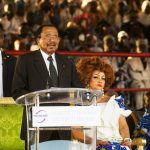Washington and Beijing Announce Breakthrough Deal Covering Trade, Agriculture, and Rare Earth Exports
U.S. President Donald Trump announced on Thursday that he had agreed to cut tariffs on Chinese goods to 47%, following what he described as an “amazing and productive” meeting with Chinese President Xi Jinping during the APEC Summit in South Korea.
The agreement marks a major breakthrough in the tense U.S.–China trade relationship, which has been strained by years of escalating tariffs, technology restrictions, and geopolitical competition. According to President Trump, the new framework includes commitments from Beijing to resume large scale U.S. soybean purchases, maintain the export of rare earth minerals, and intensify efforts to combat the illicit fentanyl trade a key issue in U.S. domestic politics.
“President Xi and I had an amazing meeting truly historic,” Trump told reporters. “China is opening up again, and America is winning again. This deal means jobs for our farmers, fairness in trade, and accountability where it’s long overdue.”
The decision to lower tariffs to 47% comes after months of negotiations led by U.S. Treasury Secretary Scott Bessent and Chinese Vice Premier Liu He, who worked to stabilize bilateral trade ahead of the summit. Economic analysts say the move could ease inflationary pressures in the U.S. while giving China renewed access to key American agricultural products.
In return, Chinese officials have agreed to delay the implementation of new export restrictions on rare earth elements critical components in electronics and defense manufacturing for at least one year. The White House also said both nations had committed to expanding cooperation on countering synthetic drug trafficking, an issue that has drawn sharp criticism from U.S. lawmakers in recent years.
The partial rollback of tariffs represents the most significant easing of U.S.–China economic tensions since the original trade war began in 2018. Still, policy experts caution that broader disputes over technology, national security, and Taiwan remain unresolved.
President Trump is expected to brief reporters further upon returning to Washington after concluding his Asia tour, which also included high level meetings in Malaysia and Japan.



